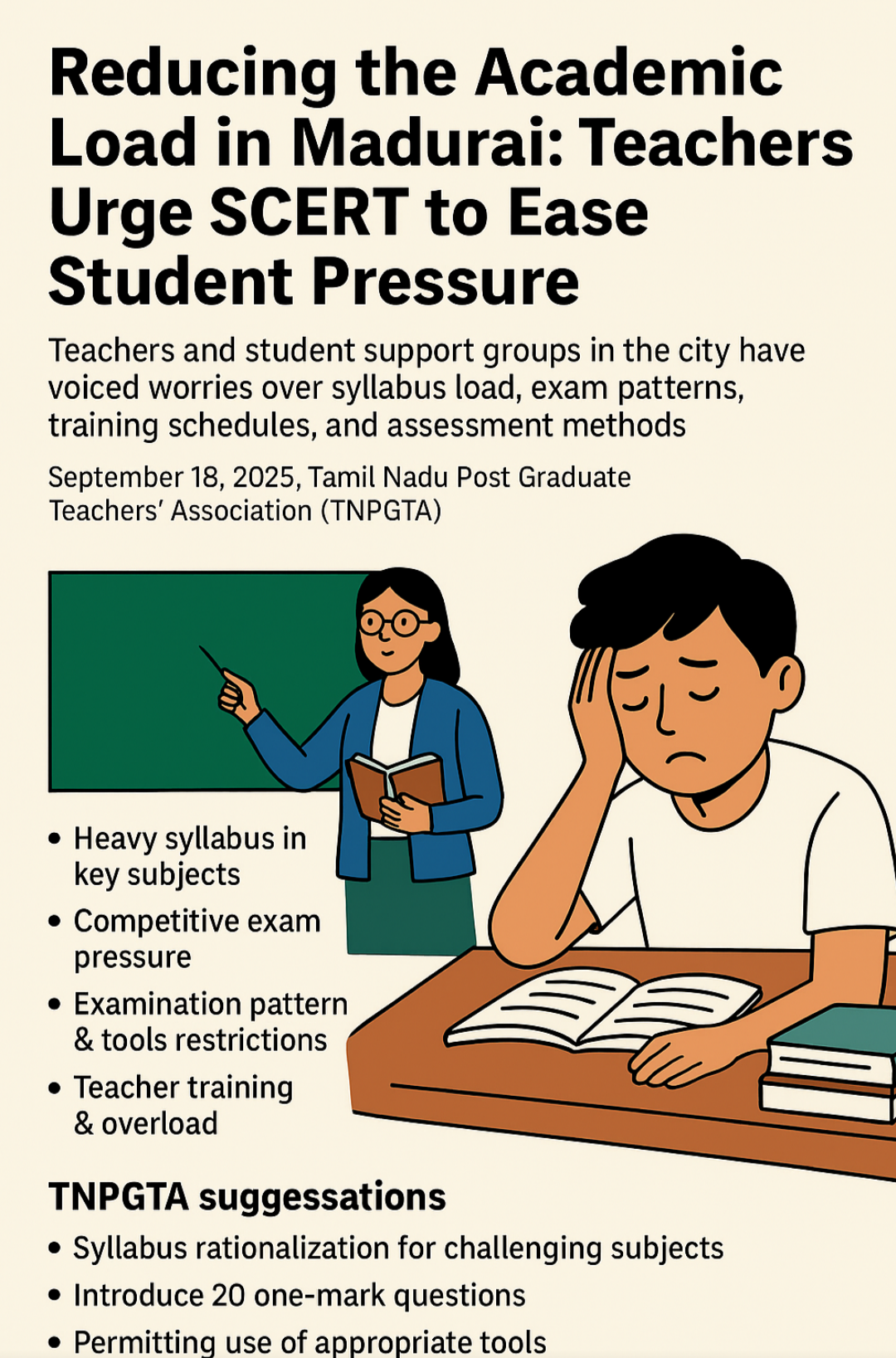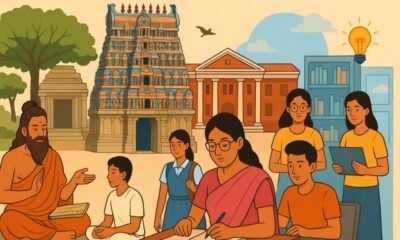Education
Skill Development vs Degrees: What Madurai’s Employers Are Really Looking For
Madurai, often celebrated as a city of temples and traditions, is also quietly shaping itself into an education and employment hub in southern Tamil Nadu. Every year, thousands of graduates step out of its universities and colleges with degrees in arts, science, commerce, engineering, and management. Yet, a recurring concern voiced by employers in the city is that degrees alone are not enough.
Companies, both small and large, are increasingly prioritizing skills over qualifications when hiring. This raises a critical question for students and institutions alike: Should the focus remain on obtaining degrees, or should skill development take the front seat in Madurai’s educational landscape?
The Degree Advantage: Why Students Still Chase Certificates
For generations, degrees have been the stepping stone to jobs and social mobility. In Madurai, institutions like Madurai Kamaraj University (MKU), The American College, Lady Doak College, and Thiagarajar College enjoy a reputation for strong academics. A formal degree is often the minimum eligibility for government jobs, teaching posts, and many corporate roles.
Students and parents, therefore, continue to see degrees as:
A symbol of status and security – especially in traditional families.
A passport to government exams like TNPSC, UPSC, and bank jobs.
Proof of discipline and persistence, since completing a three-year or four-year course requires consistency.
Yet, as industries evolve, degrees without practical exposure often fall short of employer expectations.
What Employers in Madurai Say
Local employers—from IT startups in Software Technology Parks to textile units in Tirupparankundram—are clear about one thing: they need job-ready candidates.
1. Communication and Soft Skills
Employers report that while many graduates have subject knowledge, they often lack the confidence to communicate effectively in English or Tamil, especially in client-facing roles.
2. Digital Proficiency
With digital marketing, e-commerce, and IT-enabled services expanding in Madurai, recruiters want students who can handle MS Excel, Google Workspace, Canva, coding basics, and social media tools—skills that aren’t always taught in classrooms.
3. Practical Knowledge
In fields like accountancy, mechanical engineering, and biotechnology, employers prefer candidates who have internship or project experience rather than those who only studied theory.
4. Adaptability
The post-pandemic economy has made adaptability a key asset. Employers want graduates who can learn new software, multitask, and handle dynamic work environments.
Why Skills Matter More Today
The Tamil Nadu government’s Naan Mudhalvan scheme has highlighted how industries are shifting focus. Colleges in Madurai are adopting short-term training programs in AI, digital marketing, soft skills, and entrepreneurship. Employers are keen on hiring students who complete such modules, even if they don’t have “top-rank” degrees.
In fact, several HR managers in Madurai reveal that employees who show strong skills get faster promotions compared to degree-holders who remain dependent on book knowledge alone.
The Gap Between Colleges and Industry
Despite progress, there is still a visible gap between what colleges teach and what companies need:
Syllabus delays – Textbooks and curriculum revisions often lag behind industry trends.
Exam-oriented learning – Many students study only to pass exams, not to apply knowledge.
Limited internships – Not all colleges make internships compulsory, which reduces exposure to real-world problems.
Focus on marks over creativity – Employers want problem-solvers, but students are often trained only to write standardized answers.
The Way Forward: Blending Degrees with Skills
The debate is not about choosing between degrees or skills, but about integrating both. Madurai has the potential to become a model city if students, colleges, and industries collaborate effectively.
For Students
Enroll in skill certification programs (digital marketing, coding, Tally, communication).
Take internships seriously, even unpaid ones, to build experience.
Participate in hackathons, business fests, and workshops to sharpen practical knowledge.
For Colleges
Partner with industries to offer campus skill labs.
Introduce internship-linked credits in UG and PG courses.
Create mentorship cells to help students bridge academic knowledge with real work requirements.
For Employers
Provide structured internships and training opportunities.
Conduct industry-academia meets to share expectations openly.
Reward skill-based performance rather than focusing solely on degree
Conclusion
Madurai’s strength lies in its educational ecosystem—diverse institutions, motivated students, and a growing industry base. But the future of employment in the city will not be decided by degrees alone. Skill development is the real currency that will drive careers forward.
For Madurai to truly establish itself as a modern knowledge hub, it must embrace a blended model: degrees for foundation, skills for application. When both come together, students will not only find better jobs but also become innovators and leaders, contributing to the city’s economic growth.















